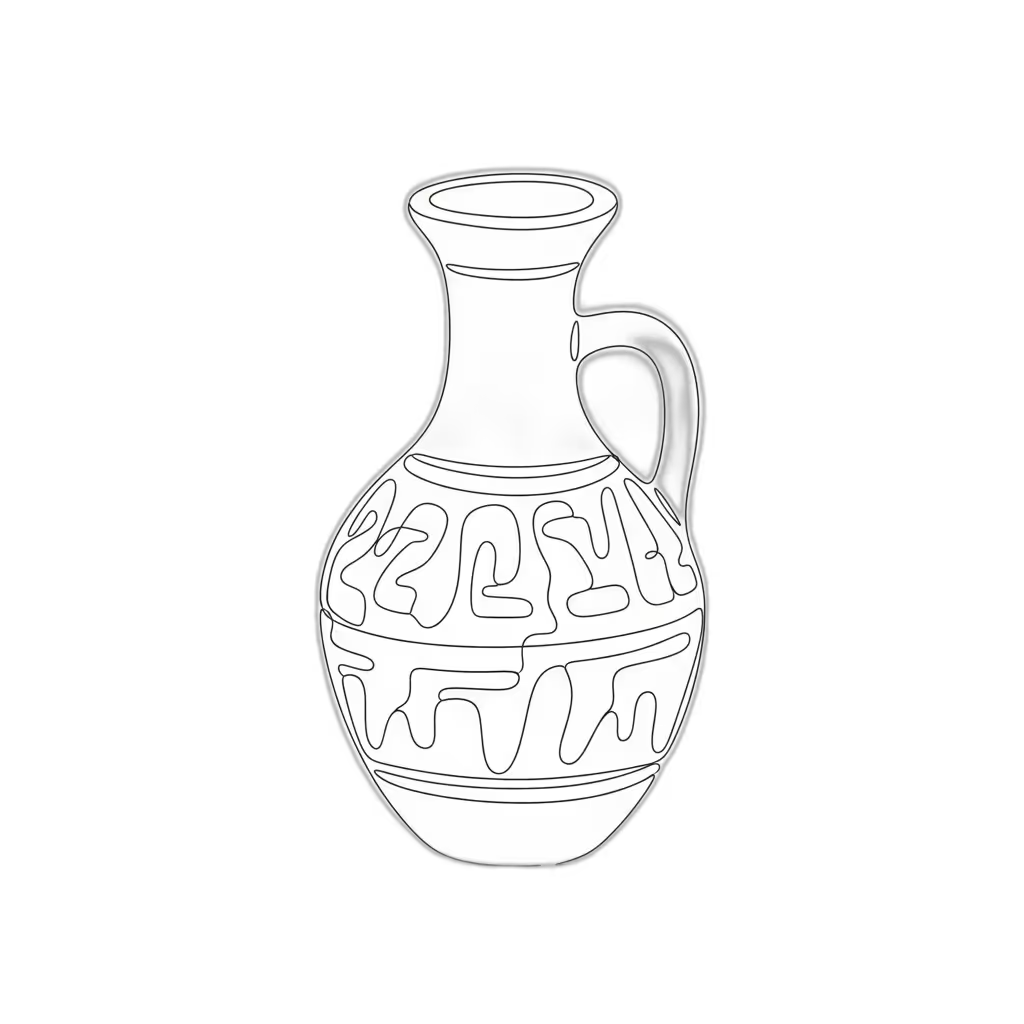






5-Star Valuation Services, Loved by Hundreds
Frequently Asked
Questions
No Frequently Asked Questions Found.
The determination of FMV is a complex process influenced by multiple interconnected factors. Market conditions play a critical role, with economic climate, local trends, and buyer demand dynamically shaping property valuations. Professional appraisers employ sophisticated methodologies to assess value, including comparative market analysis, cost-based approaches, and income potential evaluations.
Key elements that impact Fair Market Value include property location, physical condition, architectural features, and broader economic indicators. A property's neighborhood, proximity to amenities, structural integrity, and current market dynamics all contribute to its perceived value. Importantly, FMV differs significantly from distressed sale prices, which can artificially deflate a property's true market potential.
Legal and financial contexts frequently rely on accurate FMV assessments. From estate planning and divorce settlements to tax calculations and insurance purposes, a precise valuation ensures equitable transactions and compliance with regulatory requirements. The underlying principle remains consistent: determining the most realistic price a property would command under normal market circumstances.
Understanding Fair Market Value empowers individuals and professionals to make informed decisions, ensuring transparency and fairness in property-related transactions. By comprehending the nuanced factors that influence valuation, stakeholders can navigate real estate markets with greater confidence and strategic insight.
The fundamental principle behind Fair Market Value is rooted in the interaction between hypothetical willing buyers and sellers, each possessing reasonable market knowledge and operating without undue pressure or constraints. This approach ensures an impartial evaluation that reflects true market potential rather than subjective or artificially manipulated pricing.
The complexity of determining Fair Market Value involves carefully analyzing multiple critical factors. These include the asset's physical condition, current market trends, geographical location, and comparable recent sales data. Appraisers meticulously examine these elements to construct a precise and defensible value estimate that represents the most likely transaction price under typical market circumstances.
Precise Fair Market Value appraisals play a crucial role across diverse contexts, spanning real estate transactions, estate planning, business valuations, and tax assessments. By providing a standardized method of determining asset worth, these evaluations facilitate transparent and equitable financial decision-making, helping stakeholders understand the true economic value of their assets with confidence and clarity.
An artwork appraisal represents a comprehensive professional evaluation that precisely determines the monetary and historical value of an art piece. This meticulous process involves expert assessment of multiple intricate factors that collectively influence an artwork's market worth and significance.
Professional art appraisers employ a sophisticated methodology that examines critical elements such as the artwork's provenance, authenticity, physical condition, current market dynamics, and the artist's reputation. Each of these components plays a crucial role in establishing an accurate and defensible valuation.
The evaluation goes far beyond a simple price assessment. Appraisers conduct detailed investigations that may include forensic analysis of materials, historical research into the artwork's origins, and careful examination of minute details that can substantiate or challenge the piece's perceived value. They leverage extensive knowledge of artistic styles, market trends, and collector interests to provide a nuanced understanding of an artwork's worth.
Different stakeholders rely on artwork appraisals for diverse purposes, including insurance documentation, estate planning, potential sale transactions, and tax compliance. The appraisal serves as an authoritative document that provides clarity and confidence for collectors, institutions, and potential buyers.
The complexity of art valuation requires a sophisticated approach that balances objective analysis with deep understanding of artistic and market contexts. A comprehensive appraisal not only quantifies monetary value but also captures the intrinsic cultural and historical significance of the artwork.
Online artwork appraisals have become increasingly sophisticated, offering art owners a convenient and comprehensive method to determine the value of their pieces. The process typically begins with submitting high-resolution photographs that capture essential details of the artwork. Professional appraisers carefully analyze these images, examining critical aspects such as condition, artistic technique, and distinctive characteristics.
Beyond visual documentation, appraisers collect contextual information through digital communication channels. Owners provide supplemental details about the artwork's provenance, artist background, and historical significance, which help create a more nuanced valuation. This collaborative approach allows for a thorough assessment without the constraints of physical proximity.
Live video consultations have emerged as an innovative component of online art appraisals. Using platforms like Zoom or Google Meet, appraisers can engage directly with clients, rotating artwork, examining specific details, and conducting real-time discussions. This interactive method bridges the gap between digital and in-person assessment, enabling a more dynamic and comprehensive evaluation.
The digital appraisal process offers substantial benefits, including accessibility for individuals in remote locations, flexibility for busy clients, and reduced logistical complexities. Professional appraisers maintain rigorous standards, ensuring that online evaluations are as meticulous and credible as traditional in-person assessments.
Modern technology has transformed artwork appraisals, creating a streamlined, efficient approach that meets the evolving needs of art collectors and owners. By leveraging digital tools and professional expertise, online appraisals provide accurate, comprehensive valuations with unprecedented convenience.
Artwork appraisers are specialized professionals who meticulously assess the value of diverse art forms. Their expertise spans multiple domains, each requiring unique skills and deep knowledge of artistic markets, historical context, and aesthetic evaluation.
Fine art appraisers concentrate on traditional art mediums like paintings, sculptures, and drawings. These experts possess comprehensive understanding of art movements and market dynamics, often developing profound specialization in specific periods such as Impressionism or Contemporary art.
Decorative art appraisers evaluate functional artistic items including furniture, ceramics, glassware, and textiles. Their assessments consider craftsmanship, material quality, historical significance, and provenance, making them invaluable to collectors and antique dealers seeking precise valuations.
Digital art appraisers represent an emerging professional category addressing the rapidly evolving technological art landscape. They specialize in evaluating digital creations, graphic designs, digital paintings, and emerging formats like NFTs, reflecting the dynamic nature of contemporary artistic expression.
Antique appraisers focus on artworks exceeding 100 years in age, conducting thorough examinations that extend beyond aesthetic value. They scrutinize historical importance, authenticity, and originality, distinguishing genuine historical pieces from reproductions and potential forgeries.
Specialty appraisers develop expertise in distinct artistic niches, concentrating on specific artists, regional styles, or unique media such as photography or limited edition prints. Their targeted knowledge enables nuanced, precise valuations within specialized artistic domains.
Institutional appraisers employed by museums, galleries, and cultural organizations perform critical valuation services for collections, exhibitions, and acquisitions. Operating under rigorous ethical standards, they provide essential assessments for insurance, donation, estate planning, and cultural preservation purposes.
Artworks transcend mere visual appeal, representing significant financial and emotional investments. Professional appraisals provide critical insights that extend far beyond simple price determination, serving multiple strategic purposes for art owners.
Insurance protection stands as a primary motivation for artwork appraisals. Without accurate documentation, collectors risk inadequate compensation during loss, theft, or damage scenarios. Precise valuations enable insurance companies to establish appropriate coverage, ensuring financial security for valuable pieces.
Estate planning represents another crucial context for art appraisals. When transferring assets between generations, comprehensive valuations help establish fair market values, potentially mitigating potential tax complications and familial disputes. Executors and heirs gain clarity about the financial landscape of inherited artwork collections.
Charitable donations also benefit from professional appraisals. For artwork valued over specific thresholds, formal assessments become essential for claiming tax deductions. These documentations provide nonprofits with transparent understanding of donated asset values while offering potential tax advantages to donors.
Preparing for potential sales requires nuanced market understanding. Appraisals illuminate current market trends, helping owners set competitive pricing strategies. Whether considering auction placement or private sale, comprehensive evaluations empower informed decision-making.
Investment portfolios increasingly recognize art as a valuable asset class. Professional appraisals help collectors assess artwork's financial potential, tracking appreciation and understanding long-term value trajectories. These insights support sophisticated wealth management approaches.
Authenticity verification represents an often-overlooked yet critical appraisal benefit. Reputable assessments not only determine monetary value but also confirm artwork provenance, protecting collectors from potential fraud and enhancing piece legitimacy.
Ultimately, artwork appraisals represent more than financial transactions—they are comprehensive explorations of cultural, historical, and monetary significance. By bridging emotional attachment and strategic financial planning, professional evaluations offer collectors comprehensive perspectives on their artistic investments.
What Makes an Artwork Appraisal Valuable?
Key Factors Determining Artwork Valuation
An artwork appraisal is a sophisticated process that meticulously evaluates multiple dimensions to establish fair market value. This comprehensive assessment provides critical insights for collectors, investors, and art enthusiasts.
Authenticity and Provenance: The Foundation of Value
- Verification of artist's signature and original materials
- Examination of official certificates of authenticity
- Comprehensive documentation of ownership history
- Tracking previous prestigious owners or institutional collections
Market Dynamics and Demand
- Analysis of current art market trends
- Evaluation of contemporary collector interest
- Comparison with recent comparable sales
- Understanding cyclical and emerging artistic preferences
Physical Condition Assessment
- Detailed inspection of artwork's physical state
- Identification of potential damage or restoration
- Evaluation of preservation quality
- Impact of condition on overall market value
Artistic and Historical Significance
- Technical assessment of artistic technique
- Evaluation of compositional innovation
- Contextual analysis within broader art movements
- Cultural and historical relevance considerations
A professional artwork appraisal synthesizes these multifaceted elements to deliver a nuanced, comprehensive valuation that reflects both intrinsic artistic qualities and complex market dynamics.
Why Fair Market Value Matters in Art Valuation
Understanding fair market value (FMV) is a critical component in art appraisal that reflects the potential selling price of an artwork in an open, competitive market. This nuanced valuation method is essential for artists, collectors, and investors seeking to make informed financial decisions.
Key Purposes of Fair Market Value in Art Valuation
- Asset Distribution: FMV facilitates equitable resolution in complex scenarios like estate planning, divorce settlements, and charitable donations
- Transaction Transparency: Provides a credible benchmark for buyers and sellers to assess artwork value
- Financial Protection: Enables accurate insurance coverage and investment assessment
Critical Components Influencing Fair Market Value
- Artwork Provenance
- Current Market Trends
- Artwork Condition
- Artist Reputation
- Historical Sales Data
Strategic Importance in Art Markets
As art markets continuously evolve, understanding fair market value becomes increasingly sophisticated. Qualified art appraisers help navigate complex valuation landscapes by analyzing multiple factors that contribute to an artwork's true economic worth.
Comprehensive Value Assessment
Fair market value transcends a simple price tag—it represents a holistic evaluation of an artwork's potential economic impact. By considering nuanced elements like historical significance, artistic innovation, and market demand, FMV provides a comprehensive framework for understanding art's monetary and cultural value.
How Do Professional Appraisers Determine Artwork Worth?
The Professional Artwork Appraisal Process
Professional appraisers employ a comprehensive and systematic approach to determining the precise value of artwork, ensuring accurate assessments for fair market value purposes.
1. Detailed Artwork Examination
The appraisal process begins with a meticulous physical assessment of the artwork, focusing on critical elements that impact its value:
- Artist's signature authenticity
- Provenance and historical documentation
- Artwork medium and technique
- Overall condition and preservation
- Detailed inspection of paint layers
- Frame quality and integrity
- Restoration history
2. Comprehensive Research and Contextual Analysis
Appraisers conduct extensive research to establish the artwork's comprehensive market context:
- Artist's biographical background
- Artist's reputation and critical acclaim
- Historical significance within art movements
- Current market trends and collector interests
- Artistic career trajectory
3. Comparative Market Analysis
A rigorous evaluation of comparable artwork sales provides critical insights into current market valuation:
- Review of recent auction results
- Analysis of gallery sales
- Examination of private transaction records
- Identification of similar artworks by the same artist
- Tracking price fluctuations and market demand
4. Strategic Valuation Methodologies
Multiple valuation approaches are considered to ensure a comprehensive assessment:
- Sales Comparison Approach: Most commonly used method comparing similar recently sold artworks
- Cost Approach: Evaluating creation and restoration expenses
- Income Approach: Assessing potential revenue from licensing or exhibitions
5. Comprehensive Appraisal Reporting
The final stage involves creating a detailed, professional documentation that:
- Clearly states the artwork's assessed value
- Explains the valuation methodology
- Provides supporting evidence and research
- Offers insights for various purposes such as:
- Insurance documentation
- Estate planning
- Potential resale
- Investment considerations
Through these meticulous and systematic steps, professional appraisers ensure each artwork valuation reflects its true market worth with precision and expertise.
Key Factors Impacting Art Market Valuations
Key Factors Impacting Art Market Valuations
Understanding the complex landscape of artwork valuation requires a comprehensive analysis of multiple critical elements. These factors collectively determine the fair market value of an artwork, providing insights for collectors, investors, and art enthusiasts.
1. Artist Reputation and Artistic Legacy
- Established artists with substantial exhibition histories typically command higher prices
- Critical acclaim and professional recognition significantly impact artwork value
- Emerging artists may experience more volatile valuation trajectories
- Career milestones and institutional recognition play crucial roles in determining market worth
2. Comprehensive Provenance
- Documented ownership history adds substantial credibility to an artwork
- Detailed provenance can trace an artwork's journey from creation to current ownership
- Notable previous owners or exhibition histories can dramatically enhance market value
- Authenticity documentation provides critical validation for potential buyers
3. Artwork Condition and Preservation
- Physical condition is a paramount factor in determining artwork value
- Artworks with minimal restoration and excellent preservation command higher prices
- Professional conservation and proper storage techniques help maintain artistic integrity
- Damage, deterioration, or extensive restoration can significantly reduce market value
4. Artistic Medium and Technical Complexity
- Different artistic mediums carry varying market values
- Unique techniques and rare materials can increase an artwork's desirability
- Specific art movements and historical periods influence medium preferences
- Complexity of execution and technical mastery contribute to valuation
5. Dynamic Market Trends
- Art market valuations are intrinsically linked to broader economic conditions
- Cultural shifts and collector preferences continuously reshape market dynamics
- Auction results and gallery sales provide critical market insights
- Emerging artistic trends can rapidly influence artwork valuations
These interconnected factors create a nuanced framework for understanding artwork valuations, ensuring comprehensive assessments that reflect both artistic merit and market context.
Can All Types of Artwork Be Professionally Appraised?
Types of Artwork Eligible for Professional Appraisal
Professional art appraisers possess the expertise to evaluate a comprehensive range of artistic mediums, each with unique valuation considerations:
Supported Artwork Categories
- Paintings
- Oil, acrylic, watercolor, and mixed media works
- Evaluated across established and emerging artist portfolios
- Value determined by technique, artistic provenance, and artwork condition
- Sculptures
- Materials range from marble to metal, bronze to contemporary composites
- Valuation considers material complexity, cultural significance, and historical context
- Drawings and Prints
- Assessed based on artist reputation, technical execution, and rarity
- Limited edition prints evaluated differently from unique original works
- Photography
- Encompasses both contemporary and vintage photographic works
- Value influenced by photographer's reputation, edition size, and historical significance
- Contemporary Art Forms
- Mixed media and installation artworks
- Valuation adapts to evolving artistic techniques and market demands
Critical Valuation Considerations
- Artist Reputation: Recognized artists typically command higher market values
- Provenance: Ownership history provides critical context and potential value enhancement
- Artwork Condition: Physical preservation directly impacts market assessment
- Market Dynamics: Current artistic trends significantly influence perceived value
Professional art appraisal encompasses virtually all artistic mediums, requiring specialized expertise, comprehensive documentation, and nuanced market understanding to ensure accurate valuation.
The Strategic Benefits of Professional Art Appraisals
Strategic Advantages of Professional Art Appraisals
Professional art appraisals offer strategic benefits that transcend simple monetary valuation, providing critical insights for collectors, galleries, and investors.
Key Strategic Benefits
- Enhanced Financial Security
Accurate appraisals are fundamental for comprehensive art collection insurance, establishing precise coverage limits and protecting against potential losses from theft, damage, or unexpected events.
- Optimal Selling Strategies
Professional appraisals enable collectors to time art sales strategically by providing comprehensive market insights, including current trends, artist recognition, and buyer demographics.
- Estate Planning Support
Precise valuations facilitate equitable asset distribution among heirs and accurate estate tax calculations, minimizing potential family disputes and ensuring smooth wealth transfer.
- Marketplace Credibility
A professional appraisal demonstrates commitment to authenticity and value, building trust with potential buyers and institutions in the competitive art market.
Empowering Informed Decision-Making
Professional art appraisals provide collectors with comprehensive knowledge, enabling confident investment choices and strategic collection management. By understanding an artwork's true market value, collectors can make nuanced decisions about acquiring, maintaining, and potentially selling their art assets.
Understanding the Art Appraiser's Expertise
The Expertise Behind Art Appraisal
Art appraisers are sophisticated professionals who bridge the complex worlds of art, history, and market economics. Their role goes far beyond a simple assessment, delivering comprehensive insights into an artwork's true market value.
Essential Qualifications
- Advanced academic credentials in art history, fine arts, or related disciplines
- Specialized training in professional appraisal methodologies
- Ongoing certification and professional development
- Deep understanding of artistic movements and historical contexts
Key Analytical Skills
Art appraisers leverage a multifaceted approach to valuation that encompasses:
- Visual Assessment: Comprehensive evaluation of artistic quality and technical execution
- Provenance Research: Tracing the artwork's historical ownership and documentation
- Market Trend Analysis: Understanding current collector interests and sales dynamics
- Condition Evaluation: Detailed inspection of artwork's physical preservation
Valuation Methodologies
Professional appraisers utilize sophisticated techniques to determine fair market value, including:
- Comparative Sales Analysis
- Cost Approach Valuation
- Income Potential Assessment
- Historical Significance Evaluation
Strategic Importance of Art Appraisal
Art appraisals serve critical functions beyond simple monetary assessment, including:
- Insurance coverage documentation
- Estate planning and inheritance valuation
- Legal dispute resolution
- Investment portfolio management
By combining rigorous academic training, market intelligence, and meticulous analytical skills, art appraisers provide an essential service in accurately determining artwork's intrinsic and market value.
Debunking Common Myths in Art Valuation
When it comes to art valuation, several persistent myths can mislead collectors, artists, and investors. Understanding these misconceptions is crucial for accurate artwork appraisal and true market value assessment.
Common Myths in Art Valuation
Myth 1: Artist Popularity Equals Artwork Value
Many believe an artist's popularity directly determines an artwork's value. However, fair market value is a complex calculation involving multiple factors:
- Provenance
- Artwork condition
- Historical significance
- Artistic merit
- Unique characteristics of the piece
Myth 2: Auction Prices Represent Definitive Value
While auction results provide market insights, they are not absolute indicators of an artwork's value. Factors influencing auction prices include:
- Auction house reputation
- Current market conditions
- Emotional bidding dynamics
- Specific audience composition
Myth 3: Art Valuation is Purely Subjective
Professional art appraisals are far from arbitrary. Qualified appraisers use:
- Standardized evaluation methods
- Comprehensive market data
- Trend analysis
- Objective assessment criteria
Myth 4: Insurance Value Equals Fair Market Value
These two valuations are fundamentally different. Key distinctions include:
- Insurance values often cover replacement costs
- Fair market value reflects current marketplace worth
- Replacement costs can differ significantly from actual market value
By understanding these nuanced distinctions, collectors and investors can make more informed decisions about their artistic assets, ensuring accurate valuation and strategic management of their art investments.
Legal and Tax Considerations for Art Owners
Understanding Legal and Tax Considerations for Art Owners
Art ownership involves complex legal and financial considerations that extend far beyond aesthetic appreciation. Navigating these nuances requires a comprehensive understanding of fair market value (FMV) and its implications across various scenarios.
Tax Implications of Art Ownership
Artwork can significantly impact an owner's tax responsibilities through several key mechanisms:
- Capital Gains Tax: When selling artwork that has appreciated in value, owners may owe taxes on the difference between purchase and sale prices
- Precise documentation of appraisals helps substantiate claims during tax assessments
- Tax rates can vary based on holding period and artwork's appreciated value
Estate Planning Considerations
Artworks play a critical role in comprehensive estate planning:
- Fair market valuations ensure equitable asset distribution among heirs
- Artworks valued above specific thresholds may trigger different estate tax treatments
- Accurate appraisals minimize potential disputes during inheritance processes
Charitable Donation Guidelines
Donating artwork can provide meaningful tax benefits when properly executed:
- IRS requires professional appraisals to determine fair market value at donation date
- Appraisal documentation directly impacts potential tax deductions
- Ensures compliance with regulatory requirements for charitable contributions
Protecting Ownership Rights
Comprehensive documentation serves as a critical protection mechanism for art owners:
- Establishing clear provenance reduces risks of legal disputes
- Detailed records help prevent potential challenges related to ownership
- Protects against claims of theft, fraud, or misattribution
Ultimately, understanding these legal and tax considerations empowers art owners to make informed decisions, protect their investments, and navigate complex financial landscapes with confidence.
Preserving and Updating Your Art's Appraisal Value
Preserving and Protecting Your Art's Appraisal Value
Understanding the nuanced world of art valuation is essential for collectors, investors, and art enthusiasts. An artwork's value is dynamic, influenced by multiple interconnected factors that can shift its market perception and worth.
Key Factors Influencing Art Value
- Market Trends
- Art markets are constantly evolving with changing tastes and styles
- Emerging artistic movements directly impact collector interest
- Auction results and artist popularity significantly influence valuation
- Artwork Condition and Provenance
- Physical condition critically determines market value
- Professional periodic inspections help identify potential preservation issues
- Comprehensive ownership documentation enhances artwork credibility
- Artist Reputation and Career Trajectory
- Artist recognition fluctuates with exhibitions and critical acclaim
- Career milestones can dramatically increase artwork value
- Ongoing monitoring of artist's professional development is crucial
- Regular Appraisal Maintenance
- Recommended appraisal frequency: Every 3-5 years
- Ensures accurate valuation for insurance and estate planning
- Provides comprehensive understanding of current market positioning
- Legal and Insurance Considerations
- Legislative changes can impact artwork taxation
- Insurance policies require current valuation documentation
- Proactive updates protect financial investments
Strategic Art Investment Protection
Maintaining an updated appraisal of your artwork is more than a financial exercise—it's a comprehensive strategy for protecting cultural and monetary value. By remaining informed and proactive, collectors can navigate the complex art market with confidence, making strategic decisions about acquisition, preservation, and potential sales.
The key is continuous engagement: stay informed about market trends, maintain your artwork's condition, and work with professional appraisers who understand the nuanced art valuation landscape.
Navigating Artwork Appraisal Disputes
Understanding Art Appraisal Disputes
Artwork appraisal disputes represent complex challenges within the art market, often stemming from the inherent subjectivity of valuing artistic works. These conflicts can create tension among artists, collectors, and professional appraisers, making a strategic approach essential.
Common Sources of Appraisal Disagreements
- Valuation Methodology Variations: Different appraisers may employ distinct approaches to determining an artwork's value
- Market Complexity: Lack of standardized pricing mechanisms in the art market
- Subjective Assessment Factors: Varying interpretations of an artwork's historical and cultural significance
Key Challenges in Art Valuation
- Inconsistent Market Data: Unlike real estate, art lacks transparent, comparable sales benchmarks
- Contextual Value Considerations: Artist reputation, historical context, and market trends significantly impact valuation
- Expertise-Dependent Assessments: High reliance on individual appraiser's specialized knowledge
Strategies for Effective Resolution
- Obtain multiple professional appraisals from certified experts
- Maintain comprehensive documentation about the artwork's provenance
- Prioritize transparent and open communication between all parties
- Consider professional mediation with art valuation specialists
Best Practices for Minimizing Disputes
Proactive communication and a comprehensive understanding of art market dynamics can significantly reduce the likelihood of valuation conflicts. Collectors and stakeholders should invest time in understanding the nuanced factors that contribute to an artwork's market value.
When disagreements arise, approaching the situation with professionalism, objectivity, and a willingness to understand alternative perspectives can lead to more constructive outcomes.
Continuing Your Art Valuation Education
Art valuation is a nuanced discipline that demands continuous learning and interdisciplinary expertise. By systematically developing your knowledge, you can elevate your professional capabilities in artwork assessment.
Essential Components of Art Valuation Education
Understanding Fair Market Value (FMV)
Fair market value represents the most probable price an artwork would command in an open, competitive market. Key influencing factors include:
- Artist's reputation and historical significance
- Artwork's condition and preservation state
- Provenance and documented history
- Current market demand and collector interest
Staying Current with Market Dynamics
The art market is inherently fluid, requiring consistent engagement with emerging trends and shifts. Strategies for maintaining market awareness include:
- Monitoring international auction results
- Following prominent gallery exhibitions
- Tracking online and physical art sales platforms
- Analyzing price fluctuations across different art categories
Deepening Art Historical Knowledge
Comprehensive art valuation transcends mere financial assessment. Developing robust understanding involves:
- Studying artistic movements and their cultural contexts
- Recognizing stylistic variations and technical innovations
- Understanding how historical significance impacts valuation
- Exploring interconnections between artistic periods
Professional Development Strategies
Expanding your professional network and skills requires intentional, strategic approaches:
- Attend specialized art appraisal conferences
- Participate in professional workshops
- Engage with experienced appraisers and collectors
- Pursue advanced certifications and training programs
Leveraging Technological Resources
Modern technology offers sophisticated tools for enhanced artwork assessment:
- Advanced valuation software
- Comprehensive art market databases
- Digital comparative analysis platforms
- Online research repositories
Successful art valuation is an ongoing journey of learning, requiring intellectual curiosity, technical proficiency, and adaptability.
View all Locations
APPRAISEITNOW APPRAISERS ARE BEST-IN-CLASS & CREDENTIALED BY LEADING APPRAISAL ORGANIZATIONS LIKE THE ISA, ASA, & MORE.
























.svg)






